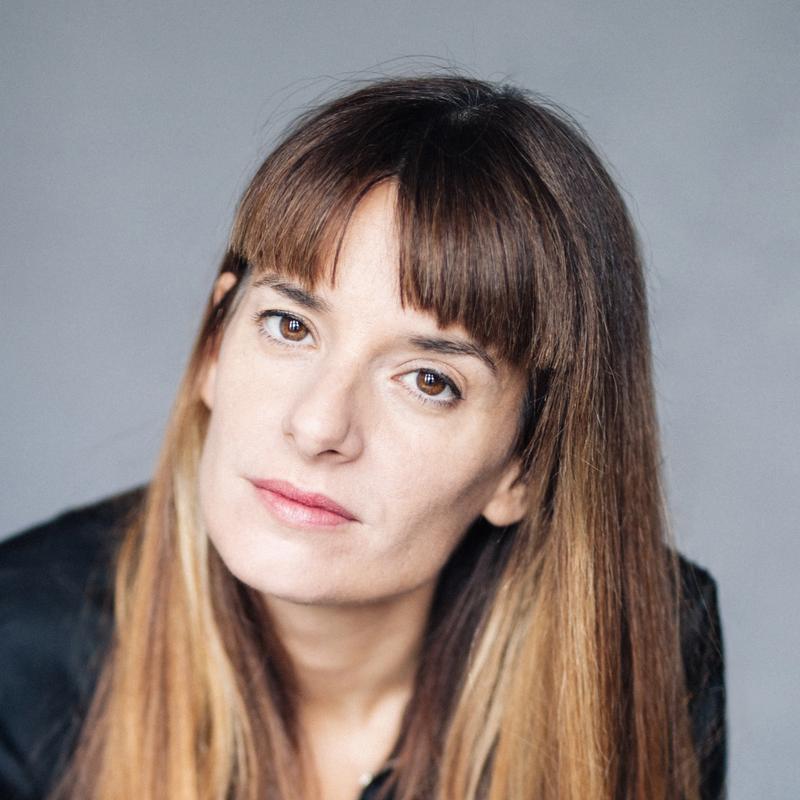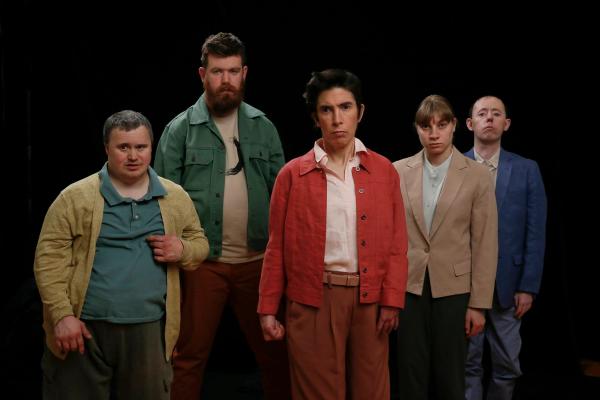Lola Arias

Argentinian artist Lola Arias, known for work across theatre and film, received the 2024 International Ibsen Award for politically engaged documentary theatre.
The Committee Statement
For twenty-five years, Lola Arias, the Argentine writer, musician, actor, director, and filmmaker, has been making work that questions who makes theatre and why.
By bringing those whose stories are being told into the very process of shaping and performing the work, she has asked profound questions about ownership, agency, ethics and artmaking. Arias’ work — encompassing short stories, tanztheater, films, installations, compositions, and poetry as well as theatre — has been both profoundly grounded in the context in which it is made and resolutely transnational in its focus and impact.
It is for her internationally impactful body of work in the genre she terms documentary theatre that her key contribution to theatre-making lies: creating performances with (rather than simply about) the people whose lives and experiences are being presented onstage. There is a strong ethical dimension to this work – developed over an extended period of time with individuals who can opt out of the process during the preparatory stage. This was the case in her 2012 production, El año en que nací/The Year I was Born, where she worked with nine Chileans born in the 1970s and ‘80s who re-enact their parents’ youth during the Pinochet dictatorship (1973-90). This 2012 piece was a commission drawing on her 2009 production, Mi vida después/ My Life After where she worked with six performers who used their parents’ experiences under Argentina’s military dictatorship (1976-83) to provide a theatre of testimony where making performance offers a mode of restaging the past. By putting on their parents’ clothes, handling their objects and mementos, projecting their photographs, and reading out their letters, they become stunt doubles who re-create their parents’ lives – lives which were erased, lives which were secretive or misrepresented to their children. The children of both perpetrators and victims find a way to play together, to co-exist, to move forward as a means of understanding the past, negotiating the present and shaping the future.
Arias, born in Argentina in 1976, soon after the military coup that plunged the country into a seven-year dictatorship, has never shied from handling difficult material. Hers is a theatre that focuses on the unfashionable, the silenced, the erased and the marginalised. It is indeed the interest, care and x-ray vision into the unfashionable aspects of seemingly topical subject matter which make her such an important artist, touching audiences who engage with the work. She never allows the profound to become flashy entertainment, instead ensuring the people and the subjects are well looked after, the presence (or absence) of lived experience carefully and sincerely represented. The debris life generates which might be thrown away, is here collected and investigated with respect and an acute sense of theatrical intelligence.
Arias directs our attention not to what is shocking or fashionable, but what needs to be told. In The Art of Making Money produced at Bremen’s Stadttheater in 2013, she placed the homeless, who congregate outside the city’s municipal theatre, on its stage to share their stories and tackle the problematic myths around homelessness. In The Art of Arriving (2015), again at Bremen’s Stadttheater, she collaborated with Bulgarian children to show the poetics and politics of integration, demonstrating how children often take on a parental role in navigating the country for parents who might struggle to learn both the language and the systems in place to secure employment, welfare and health benefits. In the trilingual Campo Minado/Minefield (2016), part of a trilogy of works on the Malvinas/Falklands conflict and its legacy, she worked with six veterans whose encounters acknowledge both shared points of reference and differences that cannot be reconciled. Theatre is here presented as living history that needs to be navigated by all those concerned.
With Lingua madre/Lengua madre/Mother Tongue (2021-22), a piece that Arias labels “an encyclopedia of reproduction in the twenty-first century”, she has provided multiple iterations of the work in Spanish, Italian and German, articulating the perspectives of those who have navigated the complex legislation put in place to police reproduction, where women often feel they have little control over their bodies. Those on stage speak from their own lived experience, presenting multiple perspectives on motherhood – as a commodity for sale, as a form of control and coercion, as a mode of agency, as a personal choice. It’s a piece across its different linguistic manifestations that provides a public visibility for difficult questions that are too often handled in the domestic space. Both in Lingua madre and her recent production Happy Nights (2023), Arias simultaneously addresses structural or systemic issues that position and contextualise the politics of gender: nationhood, oppression, misconceptions and neglect.
For Arias performances are pathways, not monuments. They re-tell, re-imagine and correct history — in the way that the performances present, for example, historical events from numerous perspectives, as in Atlas of Communism (2016) and Campo Minado/Minefield. Collaboration is key to all her work: with Rimini Protokoll’s Stefan Kaegi, she presented Airport Kids (2008) and Parallel Cities (2010-11). The latter, a study of the functional spaces in which workers toil (often invisibly), was performed in Berlin, Buenos Aires, Warsaw, Zurich, Singapore, Utrecht, Cork, Copenhagen and Kolkata. Reframed and reconceived in each city with local performers ensured that differences and contexts were never erased or forgotten.
